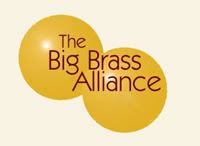Economic Morality
I found this great article on CommonDreams.org about economic morality. It is something to consider in this age where the only moral values the right wants to focused on are sex, reproductive rights, and creationism. But true morality is not the controling of sex and science, it is how we treat our fellow human beings.
If the religious right managed to browbeat everyone into being heterosexual, ended abortions and changed schools' cirriculums to creationism and abstinence only programs, we would still have to find solutions for poverty, pollution and injustice in the world. And I'll be honest with you, I've read the bible and I didn't read any passage where Jesus discussed why its OK to hate gays and starve children. So, why don't we forget about finding ways to control what people think and do and formulate real solutions for the real problems facing peoples' every day lives? I understand that the latter is much more difficult a prospect to face, but I promise you, that until corporations and governments take ownership of how their policies affect people, we will never be able to create a true ownership society.






1 Comments:
I'll be honest up front - I'm a former liberal turned conservative. I think the economic morality theme liberals adopted in response to the election defeat is actually a strength for the conservatives. The cause of "economic justice" has always been very important to me. Liberal arguments lost sway over me when I viewed some obscure yet credible statistics on food budget shares/international comparisons and US Census data on the condition of the "poor" in America.
However disagreeable capitalism may appear in practice, facts prove free-market policies provide the best means for the underclass to escape their condition. Besides generating innumerable benefits for the average American, our domestic brand of capitalism (regardless of specific individual failures, Enron being one of the most recent and flagrant) has significantly reduced the extent and severity of poverty. Americans pay proportionally less of their incomes for food, clothing and shelter than any other industrialized nation. Though relative poverty measures may give the impression of an ever-rising underclass, reality shows the American poor compare VERY favorably with citizens of other industrialized countries according to a variety of measures: living space, calories consumed daily, access to basic amenities, etc. According to the US Census Bureau, the average American living in poverty today is taller, heavier and healthier than the American troops who stormed Normandy beach on D-Day (I'll gladly direct any concerned readers to my sources - they stand up to scrutiny). With some exceptions, Americans who fall into poverty spend less time trying to regain their economic position (compare American unemployment durations with those in Europe and Japan). We've made real progress. Our capitalistic system helped us achieve those gains. Limited government, tax cuts and free trade might lack resonance with people passionate about helping the lowliest in our society. But they may be the most "economically moral" course for our leaders to follow if they promote the healthy free market upon which so many poor Americans derive their economic and social mobility.
Post a Comment
<< Home